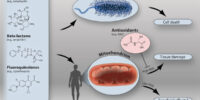What Are Antipyretics And How Do They Reduce Fever?

Fever is a common symptom characterized by an elevated body temperature, often resulting from an underlying illness or infection.
Antipyretics, a class of drugs, are commonly used to reduce fever and provide relief from associated symptoms.
This article aims to explore the mechanisms by which antipyretics work to lower body temperature, their different types, appropriate dosage and administration, potential side effects, precautions, and when it is advisable to seek medical attention.
By adopting an academic style of writing that is objective and impersonal, this article seeks to provide a comprehensive overview of antipyretics and their role in fever management, allowing readers to gain a better understanding of these medications and make informed decisions regarding their use.
Additionally, alternative strategies for managing fever will also be discussed to provide a holistic approach to fever management.
Key Takeaways
- Fevers may resolve without complications, but medical attention may be necessary in some cases.
- Warning signs for seeking medical evaluation include persistent high fever, severe headache, stiff neck, difficulty breathing, chest pain, confusion, seizures, and rash.
- Individuals with underlying medical conditions should seek medical attention if they develop a fever.
- Natural remedies and herbal supplements can help alleviate fever symptoms and support the body’s healing process, but they should not replace medical advice or treatment.
Understanding Fever and its Causes
Fever, a physiological response to infection or illness, is primarily caused by the release of pyrogens which act on the hypothalamus to increase body temperature.
The hypothalamus, the body’s internal thermostat, raises the body temperature to create an inhospitable environment for pathogens and enhance the immune response.
Fever management is crucial to alleviate discomfort and prevent potential complications. While antipyretics are commonly used to reduce fever, natural remedies also play a significant role in fever management.
Natural remedies such as staying hydrated, using cool compresses, and maintaining a comfortable room temperature can help lower body temperature.
Additionally, rest and adequate sleep are essential for the body to recover and fight off infections.
It is important to note that antipyretics should be used judiciously, especially in children, as they may mask underlying conditions and interfere with the body’s natural defense mechanisms.
Types of Antipyretics
There are various categories of medications that are specifically designed to lower body temperature during periods of increased heat production or decreased heat loss.
Common antipyretics include nonsteroidal anti-inflammatory drugs (NSAIDs) such as ibuprofen and aspirin, as well as acetaminophen. These medications work by inhibiting the production of prostaglandins, which are chemicals in the body that contribute to fever.
Prostaglandins are released in response to an infection or illness, and they signal the hypothalamus in the brain to raise body temperature. By blocking the production of prostaglandins, antipyretics help to reduce fever.
It is important to note that while antipyretics can effectively lower body temperature, they do not treat the underlying cause of the fever. Therefore, it is crucial to consult a healthcare professional to determine the appropriate course of treatment.
Mechanism of Action
This discussion focuses on the mechanism of action of antipyretics, specifically the inhibition of prostaglandin synthesis and the resetting of the hypothalamic thermostat.
Antipyretics work by reducing fever through their ability to inhibit the synthesis of prostaglandins, which are inflammatory mediators that play a role in fever production.
Additionally, antipyretics can reset the hypothalamic thermostat, which is responsible for regulating body temperature, back to a normal level, thus reducing fever.
Inhibition of Prostaglandin Synthesis
Inhibition of prostaglandin synthesis involves blocking the production of specific molecules that contribute to the inflammatory response and fever. Antipyretics, such as nonsteroidal anti-inflammatory drugs (NSAIDs) and acetaminophen, work by inhibiting the synthesis of prostaglandins. Prostaglandins are lipid compounds that are produced in response to inflammation and play a key role in the regulation of body temperature. By inhibiting the production of prostaglandins, antipyretics reduce fever.
The inhibition of prostaglandin synthesis leads to several effects that contribute to fever reduction. These include:
- Decreased production of inflammatory mediators: Prostaglandins promote the release of inflammatory mediators, such as cytokines, that contribute to fever. By inhibiting prostaglandin synthesis, antipyretics reduce the production of these mediators.
- Suppression of the hypothalamus: Prostaglandins act on the hypothalamus, the part of the brain responsible for regulating body temperature. By inhibiting prostaglandin synthesis, antipyretics can reduce the activity of the hypothalamus and lower body temperature.
- Inhibition of pyrogenic cytokines: Prostaglandins can stimulate the production of pyrogenic cytokines, which are molecules that induce fever. By inhibiting prostaglandin synthesis, antipyretics can reduce the production of these cytokines and alleviate fever.
Overall, the inhibition of prostaglandin synthesis by antipyretics is a key mechanism by which they reduce fever.
Resetting the Hypothalamic Thermostat
The process of resetting the hypothalamic thermostat is a crucial step in regulating body temperature and managing fever. The hypothalamus, located in the brain, acts as the body’s thermostat, maintaining a stable internal temperature. During a fever, the hypothalamic thermostat is “reset” to a higher temperature, leading to an increase in body temperature. Antipyretics, such as acetaminophen and ibuprofen, work by inhibiting the production of prostaglandins in the hypothalamus. This inhibits the signaling pathway that triggers the release of inflammatory mediators and resets the hypothalamic thermostat back to its normal temperature. By restoring the normal set point, antipyretics help regulate body temperature and reduce fever. However, it is important to note that antipyretics only treat the symptoms of fever and do not address the underlying cause.
Proper Dosage and Administration
Proper dosage and administration of antipyretics is crucial in effectively reducing fever. To ensure safe and effective use of antipyretics, it is important to follow dosage guidelines provided by healthcare professionals. The recommended dosage may vary depending on the age and weight of the individual. Common administration methods include oral tablets or liquids, rectal suppositories, and intravenous injections.
Here are some key considerations for proper dosage and administration of antipyretics:
- Consult a healthcare professional for appropriate dosage instructions.
- Use the measuring device provided with the medication to ensure accurate dosing.
- Administer the medication at regular intervals as directed.
- Avoid exceeding the recommended dose to prevent potential side effects.
- Follow the manufacturer’s instructions for storing and disposing of unused medication.
By adhering to the proper dosage guidelines and administration methods, antipyretics can effectively reduce fever and provide relief for individuals experiencing elevated body temperatures.
Potential Side Effects and Precautions
Moving on from the proper dosage and administration of antipyretics, it is important to consider the potential side effects and precautions associated with these medications. While antipyretics are generally safe and well-tolerated, like any medication, they can have side effects and interactions with other drugs. It is crucial for healthcare professionals and patients alike to be aware of these potential risks.
One of the most common side effects of antipyretics is gastric irritation, which can manifest as gastrointestinal discomfort, nausea, or even stomach ulcers in some cases. Additionally, prolonged or excessive use of antipyretics can lead to liver and kidney damage. It is also important to note that antipyretics can interact with other medications, such as blood thinners or certain antibiotics, potentially compromising their effectiveness or increasing the risk of adverse reactions. Allergic reactions, although rare, are also a possibility, and individuals with a history of allergies should exercise caution when using antipyretics.
To further illustrate the potential side effects and interactions of antipyretics, the following table provides a concise overview:
| Side Effects | Precautions | Drug Interactions |
|---|---|---|
| Gastric irritation | Liver and kidney damage | Blood thinners |
| Nausea | Allergic reactions | Certain antibiotics |
| Stomach ulcers |
In conclusion, while antipyretics are effective in reducing fever, it is essential to weigh their benefits against the potential side effects and interactions. Patients should follow the recommended dosage and consult with healthcare professionals to ensure their safe and appropriate use.
When to Seek Medical Attention
It is crucial for individuals to be aware of the signs and symptoms that warrant seeking medical attention when experiencing a fever.
While most fevers are self-limiting and resolve without any complications, there are instances when medical attention becomes necessary.
Warning signs that indicate the need for medical evaluation include persistent high fever, severe headache, stiff neck, difficulty breathing, chest pain, confusion, seizures, and rash.
Additionally, individuals with underlying medical conditions, such as diabetes, heart disease, or compromised immune systems, should seek medical attention if they develop a fever.
Furthermore, if a fever persists for more than three days or is accompanied by other concerning symptoms, medical evaluation is advised.
Prompt medical attention is essential to identify and manage any potential complications that may arise from a fever.
Alternatives to Antipyretics
Alternatives for managing fevers include various non-medication approaches that can help alleviate symptoms and support the body’s natural healing process. Natural remedies and herbal supplements are commonly used as alternatives to antipyretics. These remedies aim to reduce fever by stimulating the body’s immune response and promoting overall well-being.
One popular natural remedy is consuming herbal teas, such as chamomile or peppermint, which are known for their soothing properties. These teas can help reduce fever by promoting relaxation and relieving discomfort.
Additionally, herbal supplements like elderberry extract and Echinacea are believed to have immune-boosting effects, which can aid in fighting off infections that may be causing the fever.
It is important to note that while natural remedies and herbal supplements may offer some relief, they should not be used as a substitute for medical advice or treatment. If a fever persists or worsens, it is crucial to seek medical attention to determine the underlying cause and receive appropriate treatment.
Frequently Asked Questions
Can antipyretics completely cure a fever?
Antipyretics, while effective in reducing fever, do not completely cure it. They have limitations, such as not addressing the underlying cause of fever. Nevertheless, antipyretics can provide symptomatic relief by lowering body temperature.
Can antipyretics be taken regularly as a preventive measure against fever?
Regular use of antipyretics for fever prevention is not recommended due to potential side effects and the risk of masking underlying conditions. Effective dosing strategies for antipyretics should be determined by a healthcare professional.
Are there any specific antipyretics recommended for children or infants?
Specific antipyretics recommended for children include acetaminophen and ibuprofen, which are considered safe and effective when used according to the recommended dosage. However, the safety of antipyretics for infants requires further evaluation.
Can antipyretics help with the symptoms of an underlying illness causing the fever?
Antipyretics can help manage symptoms of an underlying illness causing the fever by reducing fever, which can alleviate discomfort. However, they do not directly treat the underlying illness itself.
Are there any natural alternatives to antipyretics for reducing fever?
Natural remedies, such as herbal remedies, can be used as alternatives to antipyretics for reducing fever. These remedies are derived from plants and may have anti-inflammatory or antiviral properties that help lower body temperature.









